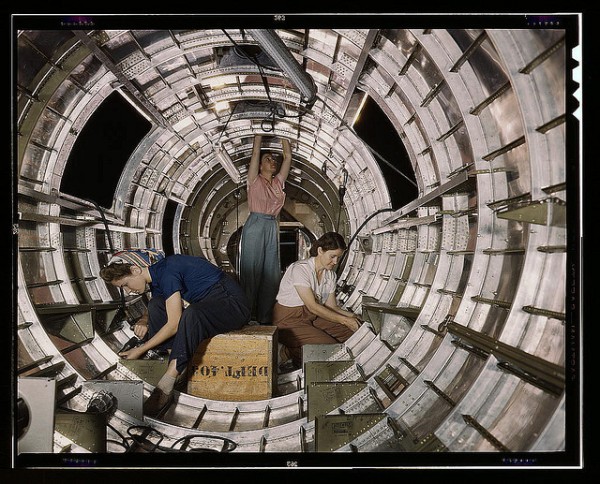Sitting in a conference hearing a male colleague speak about the mentors who’d supported his career, NASA Jet Propulsion Laboratory Professor Anita Sengupta realised that, as one of the few women in her field, she’d never had this type of support.
“I sat there thinking, I’ve been working here for 10 years, and I never had that… I’m also a professor at University of Southern California, and there are very few female professors in hard science and engineering fields. So, there aren’t enough female role models girls can look up to and feel like this kind of thing is normal. It’s a huge detractor. There aren’t enough role models pulling girls in.”
An American longitudinal study can shed light on how Professor Sengupta’s individual experience is part of a broader pattern affecting women engineers.

The research examined the reasons why women engineering students drop out before completing their course. Contrary to public perception, the study finds that family plans and self-confidence in STEM knowledge (such as math abilities) do not have a significant impact. Instead, the study shows that women tend not to finish their engineering degrees because they lack “professional role confidence.” This idea encompasses a person’s assessment that they can fulfil the roles, competencies, and identity required of engineers.
The study follows 288 randomly selected students who began their engineering degrees in 2003 at four universities, following their progress at 2007. The universities included: MIT, the University of Massachusetts at Amherst, the Franklin W. Olin College of Engineering and Smith College. The findings of this study are consistent with other empirical research, finding that men are more likely to persist in engineering than women.
Women are twice as likely to switch to a different STEM major than men. Interestingly, amongst the small proportion of men who switch out of engineering, they’re more likely to go into a non-STEM major. This suggests that women’s interest and proficiency in STEM is not the reason why they leave engineering, while this may be true for the men who leave engineering courses.
Professional role confidence is greatest amongst Hispanic and Asian American students.
Professional Socialisation

The study argues that becoming a successful professional requires more than just technical skills. It also depends on professional socialisation. That is, how we learn both the practical and unspoken (tacit) expectations of what’s required of us in our fields. We also need to be able to identify with the values and norms of our profession. This includes adopting the types of mannerisms, demeanour, and self-presentation (including dress) that’s expected. The researchers write:
“If a profession’s norms of interaction are highly masculine or perhaps even antifeminine… it may be more difficult for women to gain this type of confidence…. Through professional education, students are expected to develop views of themselves as competent, skilled, successful professionals and to become committed to and enthusiastic about their future careers.
Present findings show that early professional role confidence predicts persistence measured three years later. If women develop less confidence about their abilities to be successful professionals and express more ambiguity about their fit or comfort within the discipline, then women will remain in engineering at lower rates than men.”
Engineering still relies on, and rewards, stereotypes of masculine behaviour. Women not only have to navigate this culture, but they have the additional burden of “proving to others that, despite gendered expectations, they are skilled engineers.”
Need for Role Models
The lead researcher, Stanford University researcher Erin Cech, explains that professional role confidence arises because engineering careers are not communicated to students as something that fits in with women’s lives or knowledge:
“Women engineering students go to the same classes, take the same tests, and get the same GPAs as men, sometimes even higher… But, what we found is that the women in our study developed less confidence in their engineering expertise than men did and they also developed less confidence that engineering is the career that fits them best, even though they went through the same preparation process as men… [This] stems from very subtle differences in the way that men and women are treated in engineering programs and from cultural ideologies about what it means to be a competent engineer.
Often, competence in engineering is associated in people’s minds with men and masculinity more than it is with women and femininity. So, there are these micro-biases that happen, and when they add up, they result in women being less confident in their expertise and their career fit.”
A big part of the problem is that engineering programs do not demonstrate how women might navigate their engineering careers. There are not enough women engineers being brought into their classroom to demonstrate that women can be successful in this field. Providing women engineering students with internships would help them gain practical skills to bolster their career planning.
Internships and workshops need to explicitly address the gender dimensions of professional roles, expertise, and career fit. The focus should be on practical ways to support students plan and navigate professional issues and address how to change the gender biases within engineering culture.
Learn more:
The study, “Professional Role Confidence and Gendered Persistence in Engineering,” published by American Sociological Review.
